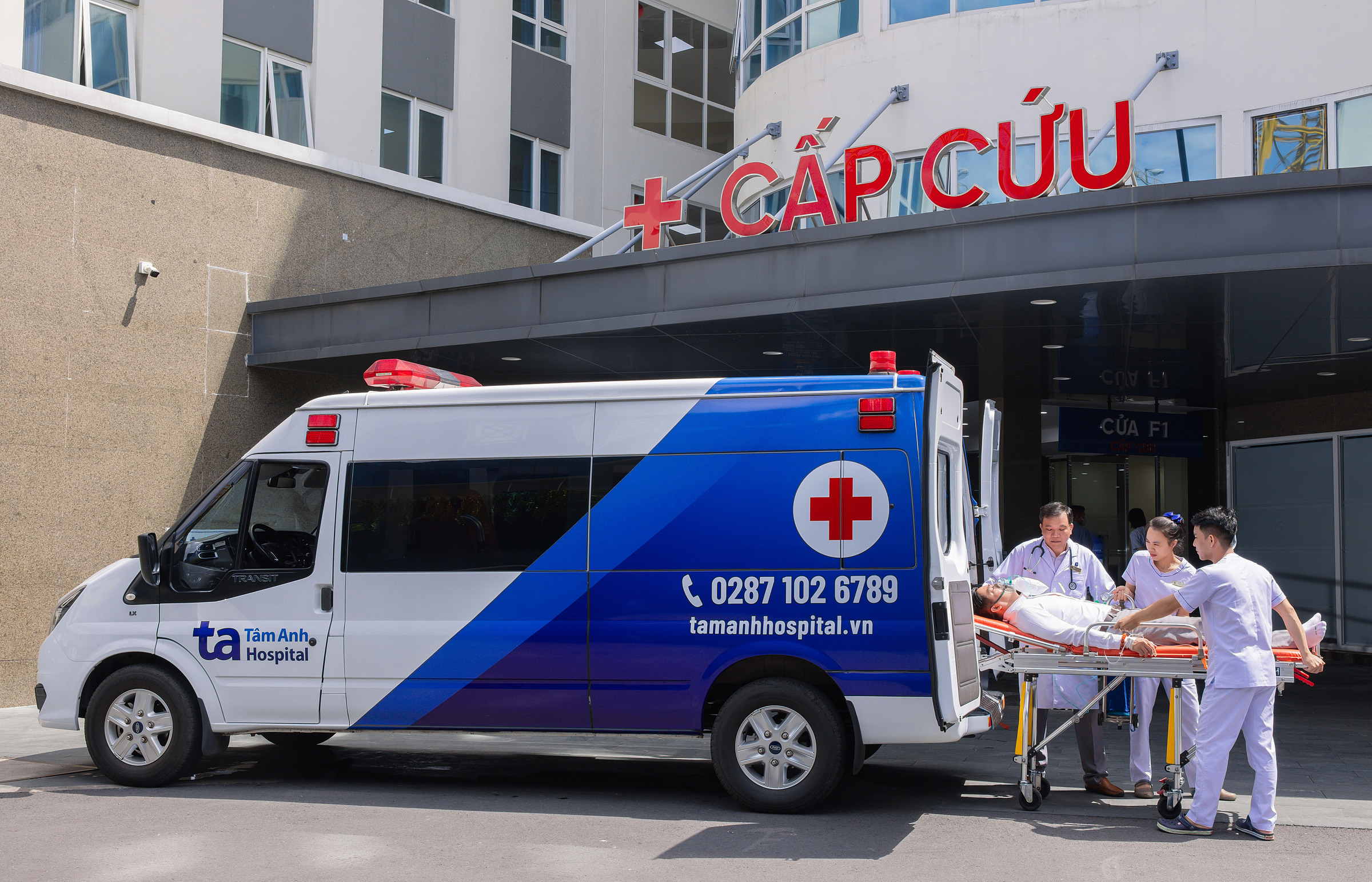The man, who has a history of hypertension, skipped breakfast and worked outdoors until noon. He then experienced fatigue, vomiting, and epigastric pain (above the navel). At the Emergency Unit of Tam Anh General Clinic, District 7, Doctor Cao Hoang Thien diagnosed him with an ST-elevation myocardial infarction (STEMI), a critical emergency.
After administering medication according to protocol, Dr. Thien ordered the patient's transfer to Tam Anh General Hospital in Ho Chi Minh City for stent placement to reopen the narrowed blood vessel, while activating "Code STEMI" (the emergency procedure for heart attacks).
Dr. Thien said epigastric pain and vomiting are common symptoms of inferior wall myocardial infarction, often mistaken for heatstroke or common gastritis.
At the Interventional Cardiology Center, Tam Anh General Hospital in Ho Chi Minh City, Doctor Nguyen Minh Chau and the team urgently performed stent placement for the patient, restoring blood flow within the "golden hour." After 5 days of hospitalization, the patient's condition improved, and he was discharged.
 |
When activating "Code STEMI", the Interventional Cardiology team coordinates with Emergency doctors to receive heart attack patients. Illustrative photo: Tam Anh General Hospital |
When activating "Code STEMI", the Interventional Cardiology team coordinates with Emergency doctors to receive heart attack patients. Illustrative photo: Tam Anh General Hospital
According to Dr. Chau, STEMI is the most dangerous type of heart attack. It occurs when a coronary artery is completely blocked, depriving the heart muscle of blood and leading to necrosis. This can cause cardiac arrest or cardiogenic shock, life-threatening conditions.
Heart attack symptoms include severe chest pain radiating to the shoulder, jaw, or abdomen, shortness of breath, sweating, nausea, dizziness, and rapid or irregular heartbeat. In severe cases, the patient may experience cardiac arrest and sudden death.
Unhealthy lifestyles such as smoking, drinking alcohol, consuming excessive salt, sugar, and unhealthy fats, lack of exercise, and substance abuse are risk factors for heart attacks. Age, family history, and congenital diseases are also contributing factors. The disease can cause dangerous complications including heart failure, cardiogenic shock, arrhythmia, cardiac rupture, and death if not treated promptly.
To prevent heart attacks, Dr. Chau advises people to manage underlying medical conditions, quit smoking, maintain a healthy weight, follow a healthy diet, exercise regularly, and undergo regular health checkups.
Nhat Thanh
| Readers can ask questions about cardiovascular diseases here for doctors to answer. |












